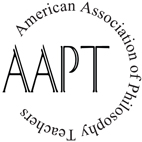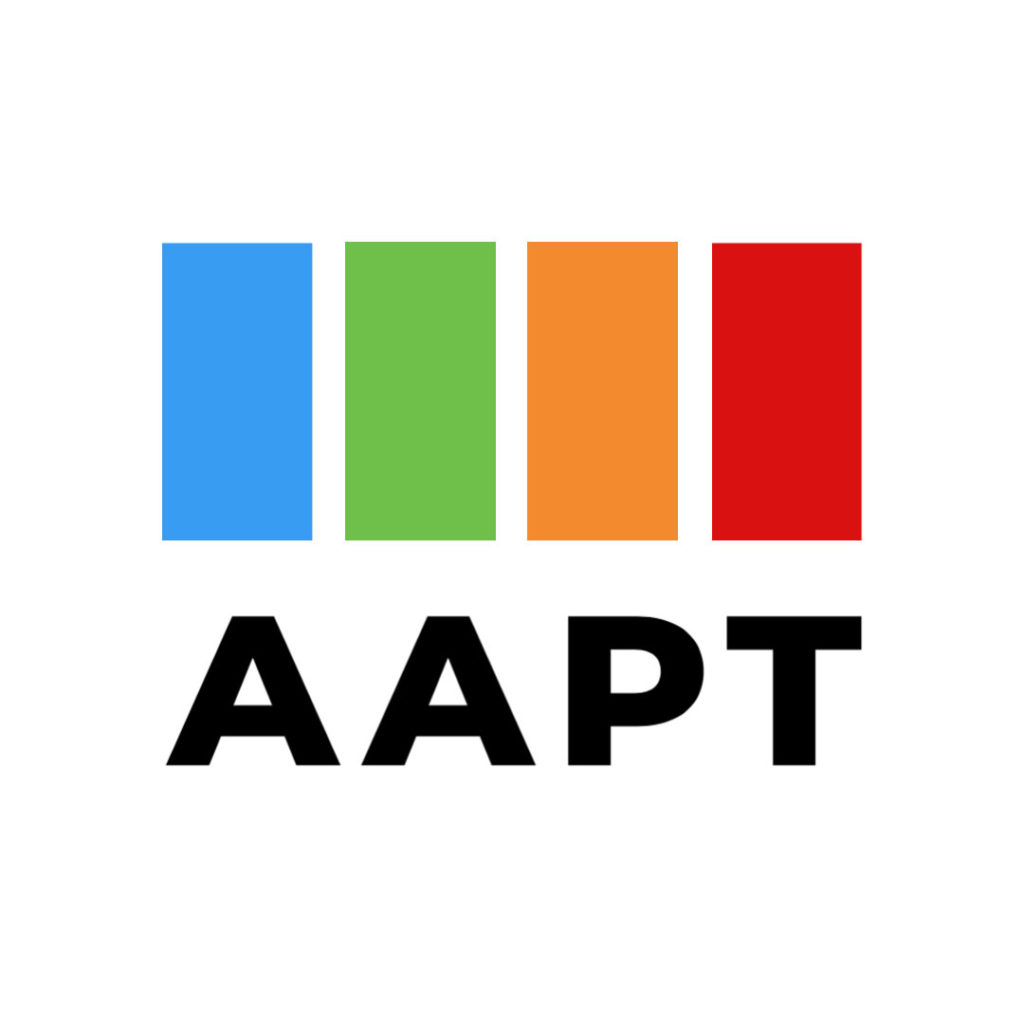AAPT Grants For Innovation in Teaching
The American Association of Philosophy Teachers (AAPT) is dedicated to the advancement of the art of teaching philosophy. One of the AAPT’s initiatives in support of this mission is an ongoing small grant program: the AAPT Grants For Innovation in Teaching.
Through this program, the AAPT is offering competitive small grants to support the implementation of projects involving innovations or modifications to one’s teaching. Grants are awarded biannually, in even years. Preference will be given to those projects that have a broad appeal. Grant applications should be sure to specify the aim of the project, its learning goals, your criteria of success, and your proposed timeline.
It is expected that grant recipients will publicly disseminate the projects in some form after completion (the AAPT website will be available as a potential vehicle for this). Grant recipients are required to submit a final project report due after the completion of the project, which will be posted on our AAPT website.
Eligibility: Open to any instructor teaching at the college-level: full-time, part-time, adjuncts, and grad students are all welcome. Grant recipients must be current AAPT members. The call for applications is typically distributed in May, with applications due in August.
Recipients of the 2024 AAPT Grants
|
Recent Grants:
- 2022
- “Summer Program Inclusivity Consultant” (Russell Marcus and Catherine Schmitt)
- 2020, https://philosophyteachers.org/2020-aapt-grant-recipients/
- “Tulsa Race Massacre at 100: Contractualism and Reparations” (Heather Wilburn)
- “Difficult Conversations about Race, Class, and Gender” (Wes Siscoe)
- 2018, https://philosophyteachers.org/2018-aapt-grant-recipients/
- “Bringing Philosophy to Life for Introductory Students” (Rebecca Scott)
- “Social Dimensions of Equality” (Kristin Seemuth Whaley)
- “Reflective Journaling In and Out of Philosophy Classrooms” (David C. Spewak, Jr.)
- “Steve Biko as a Means of Introducing First-Year Philosophy Students to Modern Philosophy” (Gregory Swer)
More information:
- Inquiries about the grant program should be directed to grants@philosophyteachers.org.
- Information about the American Association of Philosophy Teachers, please visit: https://philosophyteachers.org/.
- AAPT membership information and application is available at: https://www.pdcnet.org/aapt/American-Association-of-Philosophy-Teachers-(AAPT).



